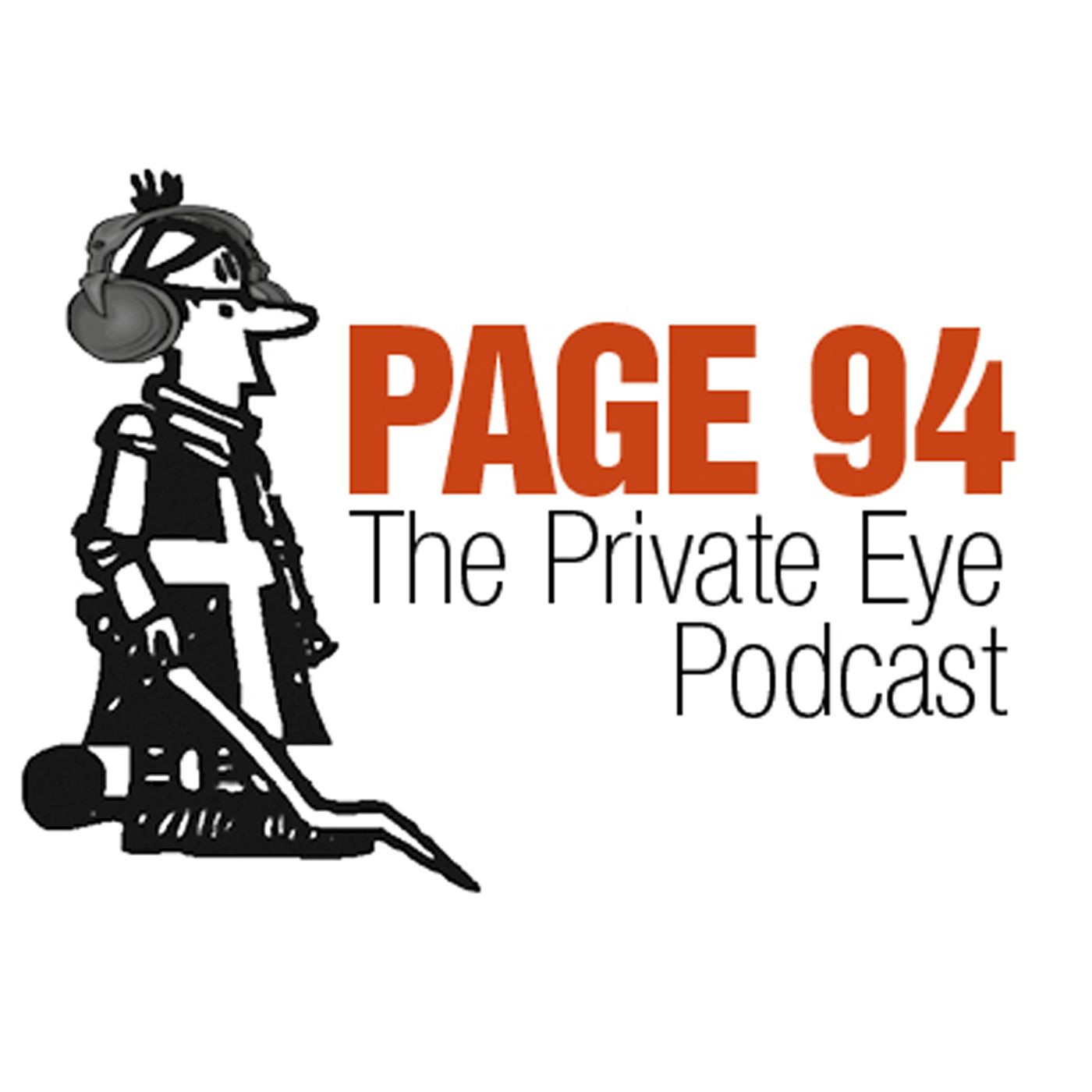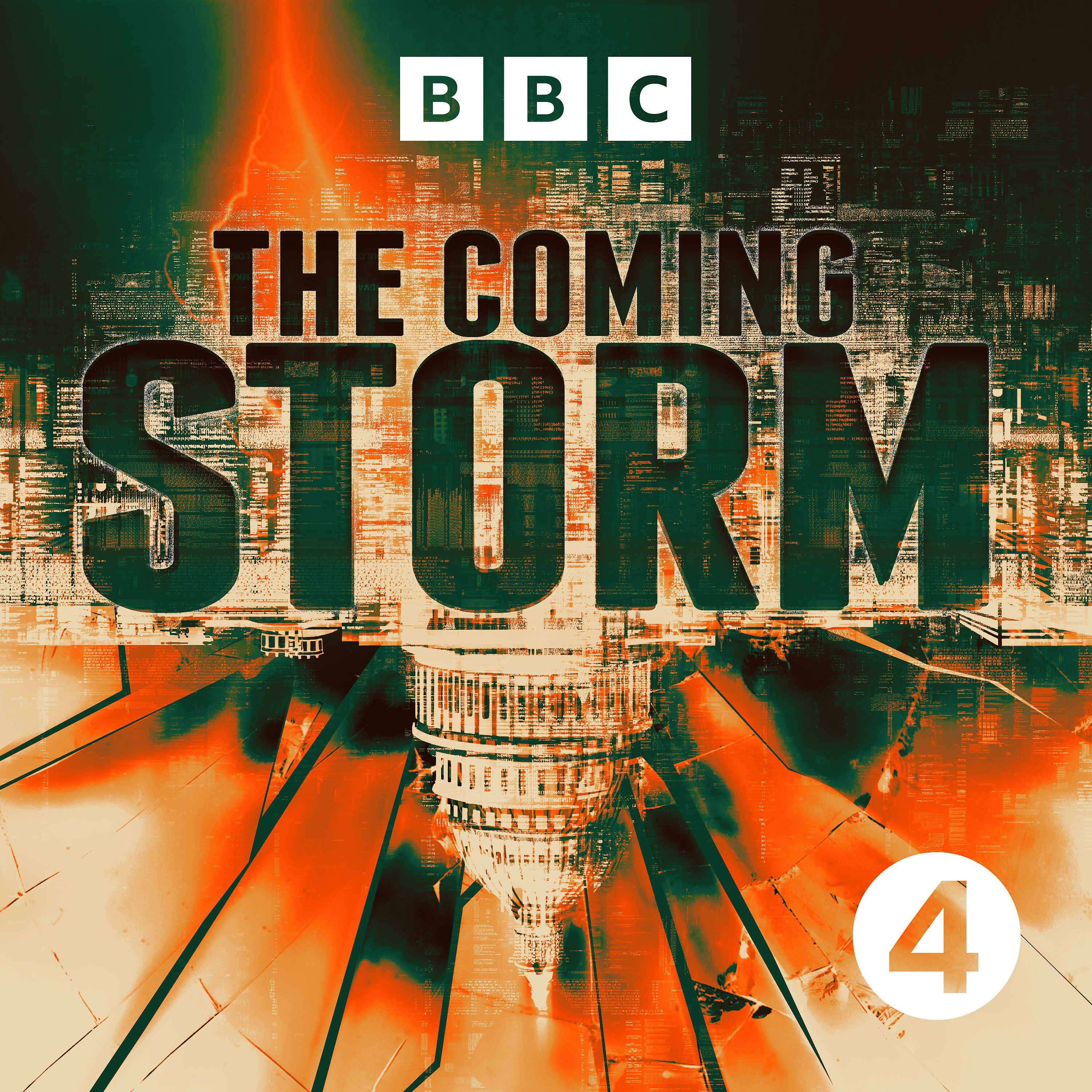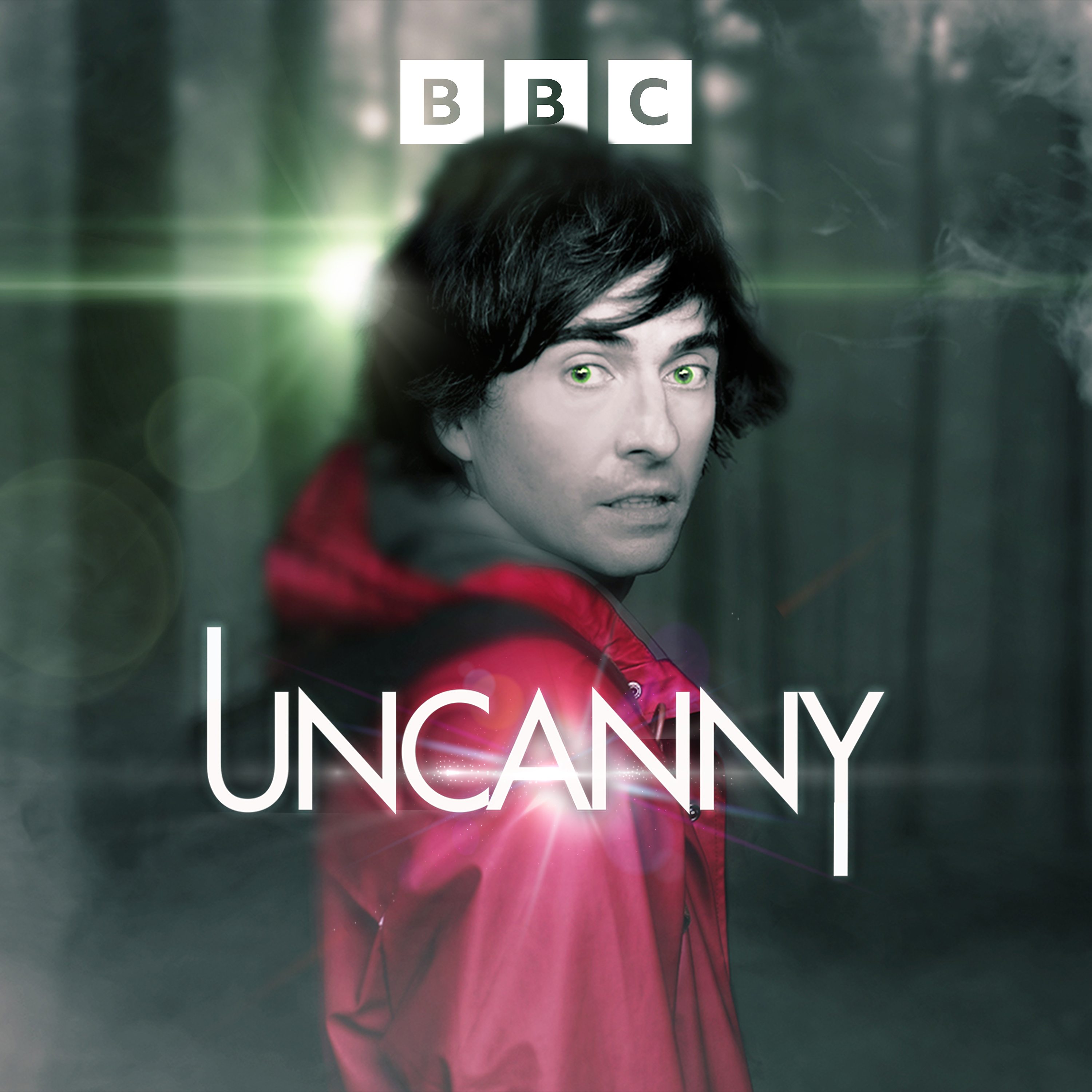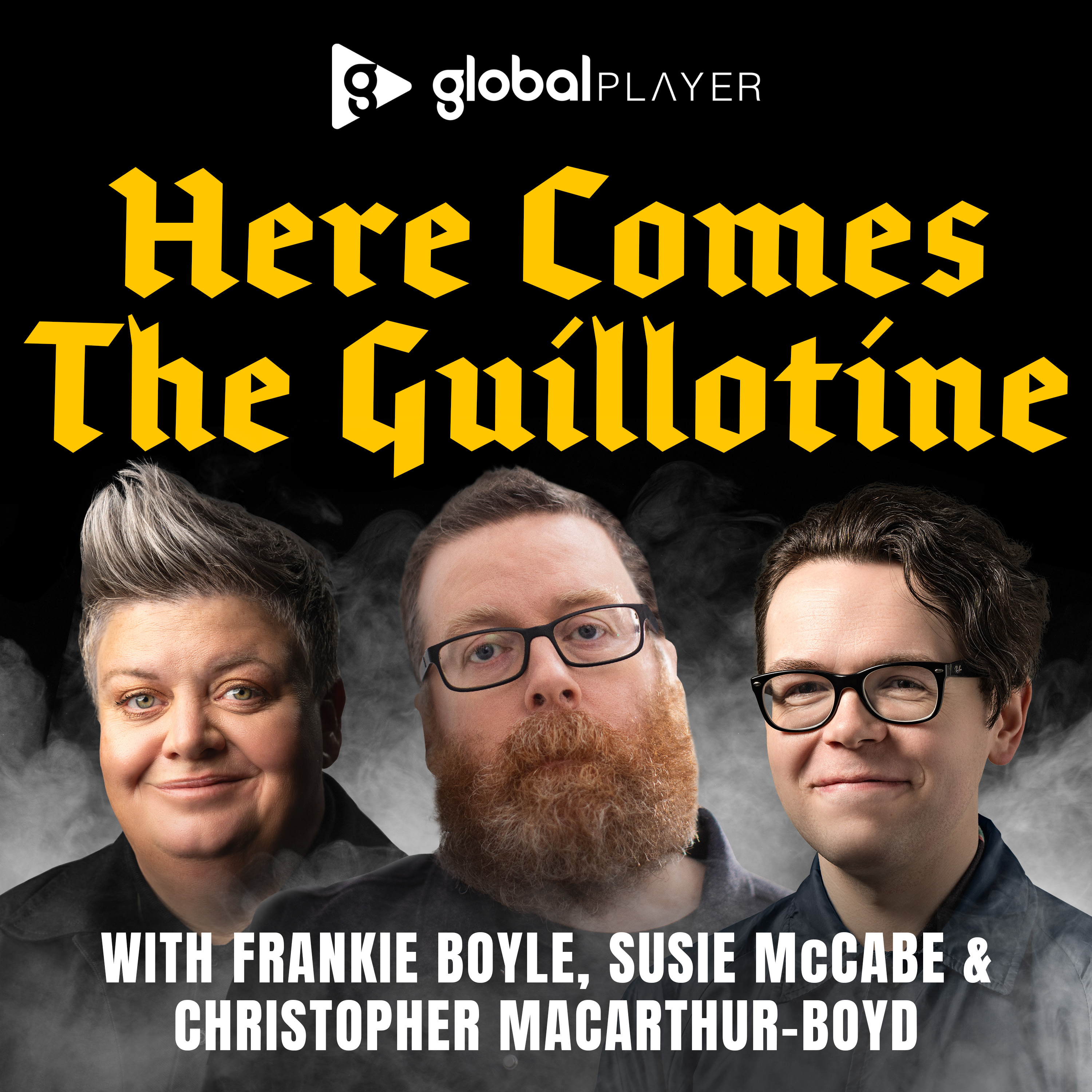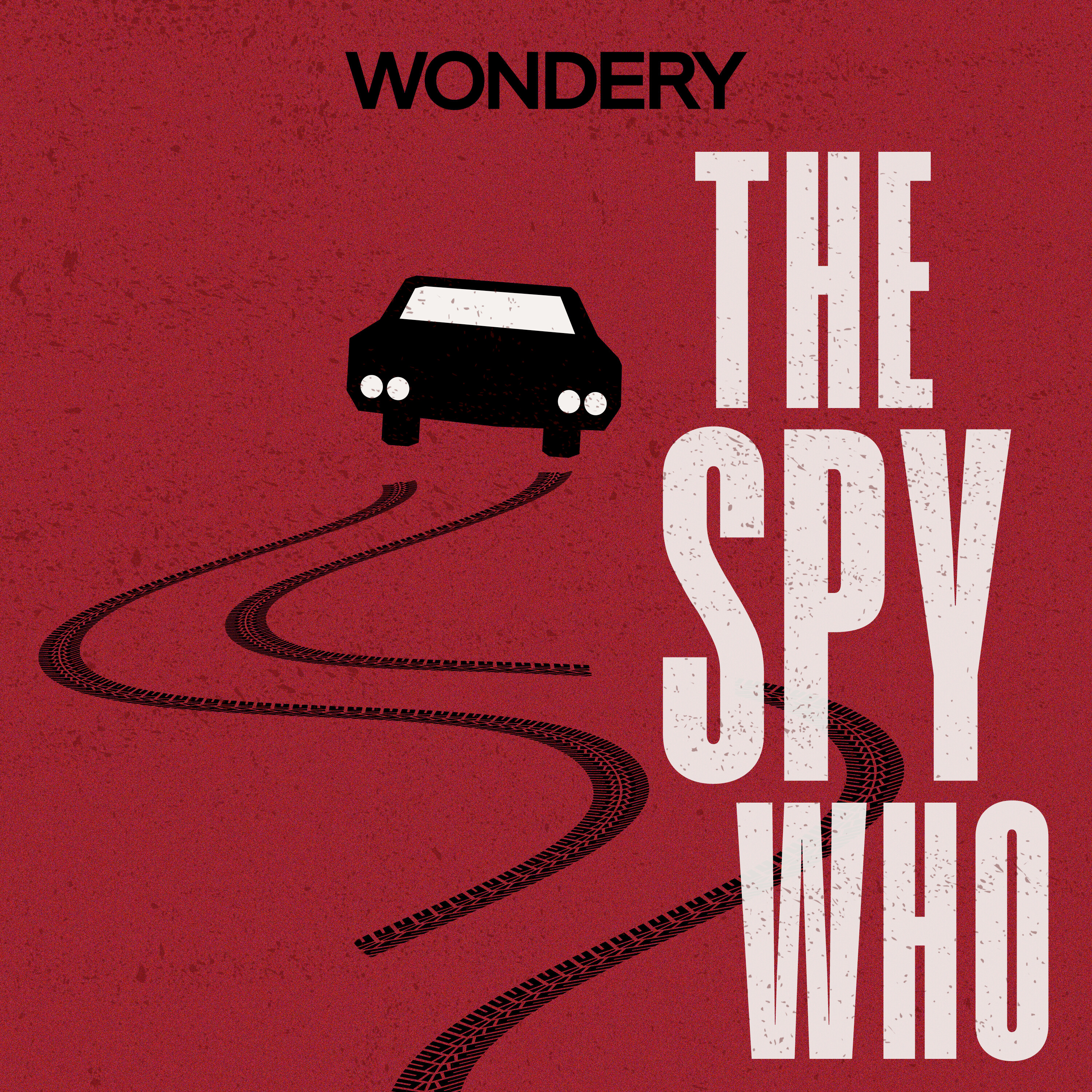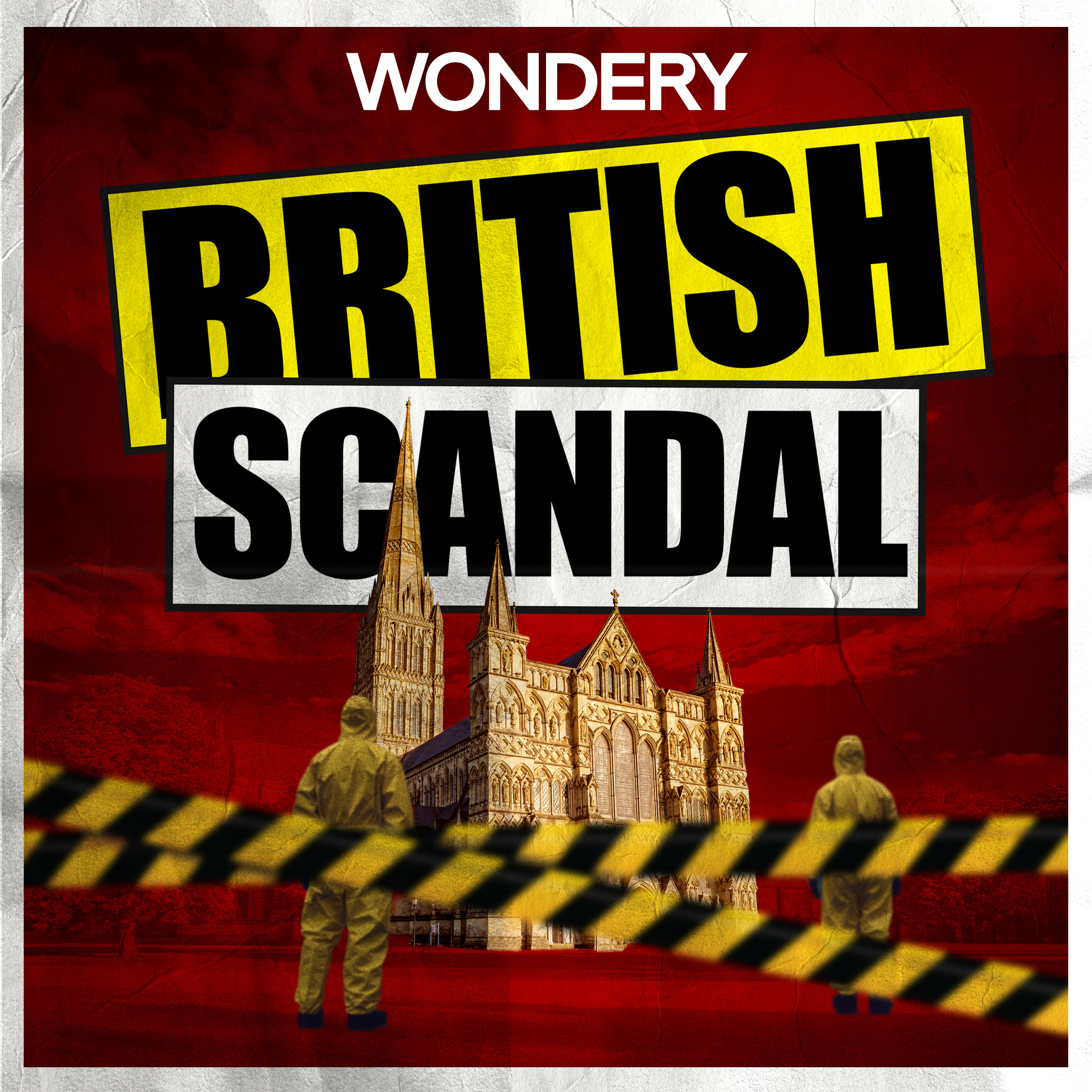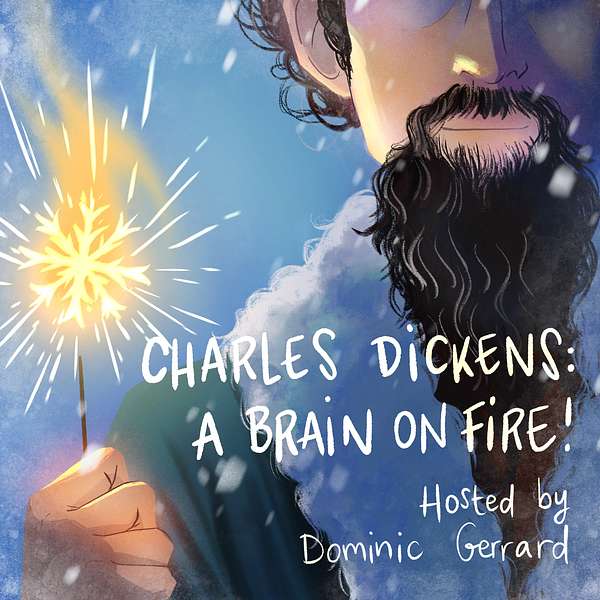
Charles Dickens: A Brain on Fire! 🔥
Guests include: Stephen Fry, Miriam Margolyes, Armando Iannucci, Alice Loxton, Robert Douglas-Fairhurst, Lucinda Hawksley, John Mullan, Pen Vogler, Andrew Davies, Rosie Holt, Bernard Cornwell .... and many more academics, writers, actors, directors and descendants of the great man himself!
Along side these interviews there are special Dickens readings from across his works ...
Thank you for listening 🔥
Charles Dickens: A Brain on Fire! 🔥
Charles and Catherine: with Helena Kelly
It is Publication Eve for today’s guest the inimitable Dr. Helena Kelly. Her latest book The Life & Lies of Charles Dickens (published by Icon Books) lifts the cover on what we think we know about Dickens from his friend and sanctioned biographer John Forster.
In this episode we try to spend some time with Dickens’ wife Catherine, and understand the enormous struggles they both went through: when Charles’ genius sent their lives into the stratosphere, right from the very start of their marriage, at a time when no-one had written the handbook yet on how to cope with global fame …
If you'd like to make a donation to support the costs of producing this series you can buy 'coffees' right here https://www.buymeacoffee.com/dominicgerrard
Thank you so much!
Host: Dominic Gerrard
Series Artwork: Léna Gibert
Original Music: Dominic Gerrard
Thank you for listening!
Hi everyone, it is publication Eve for today's guest. We last spoke way back in February 2022, when even the title of her book which hits the streets tomorrow was up for grabs. I can now confirm that she has settled on the Life and Lies of Charles Dickens, published by Icon Books, which seeks to lift the cover on what we think we know about Dickens from what his sanctioned biographer, john Forster, wrote about him. In this episode, we try to spend some time with Dickens' wife, catherine, and understand the enormous struggles they both went through when Charles's genius sent their lives into the stratosphere right from the very start of their marriage, at a time when no one had written the handbook yet on how to cope with global fame. Please welcome back Dr Helena Kelly.
Speaker 2:Hello, thank you for having me back on.
Speaker 1:Oh no, it's lovely to have you back, and we are on the eve of your publication.
Speaker 2:It's been a slow book to write. There's just so much stuff with Dickens and it's my last book, which was about Austin. I'd been teaching her and kind of knew a lot of stuff already, Whereas here I was kind of starting more or less from the beginning. So there was a lot of fiddling and archives, both in person and remotely, and a lot of you know he's so busy, he goes on for such a long time, he's constantly like doing stuff. It's hard to kind of draw that amount of data into a kind of coherent book. I'm actually surprised it's not longer. It's actually quite a slender volume.
Speaker 1:I'm enjoying it. I'm finding it very easy to read. It carries you along at a good rate, you know. But what I liked about our chat last time when you were talking about writing this book and we went into quite a lot of the topics in this book, it still had its working title of the Life and Lies of Charles Dickens. So it's with great pleasure that I get to hold up this proof copy that was sent to me of the Life and Lies of Charles Dickens. And I thought for today's episode, because everyone listening to this episode if you've not heard our chat from February last year, you should go back and listen to that as well. But I thought it'd be very interesting to focus on Catherine Dickens, her story, really, and what it was like to be married to one of the most famous men of the 19th century. But I'll let you lead, helena. You take us on this journey. How do you want to start?
Speaker 2:I guess, by talking about Catherine herself, the fact that she didn't really know what she was getting into when she married him. So Catherine Hogarth is her maiden name. She's from a Scottish family, born in Scotland. Her father's a journalist. Her mother's family as well. They're all engaged in the literary scene in Scotland so they know people like Scott and Burns. So she's one of 10 children, one of four sisters. They all had very interesting, let's say, relationships with Dickens one way or another. Catherine's father moved around to different newspapers. They came to England, moved around England quite a bit and they ended up in London where her father worked for the Morning Chronicle and then the Evening Chronicle, which was sister papers, and that's how she met Dickens, like through her dad. So Dickens also was working for the Morning Chronicle, was publishing for the Morning Chronicle To learn quite a lot of his short stories first appeared and you know they met and he came to their house and met Catherine.
Speaker 2:He was certainly kind of the normal version of his life says that he was slightly on the rebound. He'd had this very intense kind of late teen obsession with another woman whose name was Maro Beednall that hadn't worked out. I mean partly because they were really really, really young. And at some point in 1835, charles and Catherine get engaged and he's an up-and-coming journalist and short story writer. She's the daughter of a journalist. It's a nice, happy marriage. I mean she doesn't really have any money but she's pretty and she's got good connections and she's got these kind of more distant connections to kind of literary circles in Scotland. And so there's one letter where Dickens announces to one of his uncles that he's getting married and the letter's all about like Catherine's dad and his career and how he's finally got enough money to get married on, because they originally were anticipating much, much longer engagement and there's hardly anything about her at all. She's like right in the middle of this sentence and in some ways I mean it's difficult not to see that as an omen for the position that she ends up in, because there's so much else that comes into Dickens life just after they get married that she kind of gets squeezed into this smaller and smaller space and I mean that is, I think, very often what happens with when fame kind of attacks someone's life. So they got married at the beginning of April 1836. And so Dickens said he'd have these kind of short stories published and they were doing well. They weren't doing kind of like stunningly well, but they were doing decently and he'd just been commissioned to write the copy for this very, very famous comic illustrator called Seymour. And then Dickens, up and coming young writer, was gonna write like the comic copy and then, as probably lots of your listeners will know, seymour committed suicide. He'd had long, longstanding mental health issues and Dickens takes over the whole project himself, basically gets a new illustrator on board.
Speaker 2:All of a sudden it explodes. It's the Pickle Papers. It's amazing, everyone loves it. It goes crazy. And so over a very, very short period of time it's like the first two or three months of their marriage Catherine goes from. She marries a pretty ordinary guy, clever, decent, a very sensible kind of practical marriage. He's got enough to provide for her, he's got, he's married into a family that's gonna give him some connections and so on. And then all of a sudden it absolutely goes stratospheric. She's also pregnant, she basically I mean so far as we can work out if they're pregnant on their honeymoon. So it's a lot to take actually for her.
Speaker 2:I think it must have been incredibly difficult. You know you've never had sex before or something you're doing, that You're pregnant for the first time. That's what a discombobulating experience. And oh, your husband's suddenly incredibly famous and everyone wants a piece of him. I think it must have been really really, really hard for her. I think for Charles as well. I mean famous? I don't think famous is much fun as it looks from the outside. I think it's actually quite rubbish. She really didn't know what she was getting into, I think.
Speaker 2:And then things keep going wrong for them. It's you know. Obviously he does treat her very, very badly later on. But they have this incredible, just such a difficult start to married life. Her husband's probably kills himself and there was a lot of reporting around that and his family. They kind of bore a grudge for a really really long time about what hurts, about the fact that it just lived and got famous off the Pickwick papers and that their relative had died and kind of gets written out of the story. And they're still going on about it like 30 years later. They clearly felt deeply evicted about the whole thing. So there's that going on.
Speaker 2:Baby is born we think Catherine had post-natal depression. Certainly she doesn't seem to have taken to motherhood quite like a duck to water. And then her sister Mary, who'd been living with them. She suddenly dies. She kind of I think her health had never been kind of superb, but it was a real, real shock. So they go to the theater, three of them together. She'd been spending a lot of time but basically living in their household most of the time and they go to the theater. They come back she collapses, dies the next day, at which point dickens bear in mind this is like Catherine's husband suddenly goes into this weirdly obsessive, over-the-top mourning for her.
Speaker 2:Cavan has a miscarriage. Whether that's emotional upset, stress, or whether it was just that she got pregnant again too quickly, there's no possible way of knowing. But so sister's dead, miscarriage, then she gets pregnant again. The hormonal roller coaster that she's going through in this first sort of that year it was 1837, just breathtaking. They move house because they have to move out of the flat that they're living in in London because it doesn't have children, so they move down to this cottage in Chalk and then Charles is never there. It's such a difficult time. It must have been so hard for them, but the baby's just kind of keep appearing and Charles is working frenetically. His mental health at this point does not seem to be fantastic. The obsession with Mary's death. It's all a bit weird, but he didn't really ever kind of process that grief properly. He was working and the family had at that point particularly bad financial problems.
Speaker 2:I don't think he ever got the chance to kind of work through it and I mean, like I say, he was under an enormous amount of stress. He's writing kind of two books at a time. He was halfway through the pick with papers starts writing the twist, starts writing the twist. He starts writing the little Nipple Bee. He's doing little plays and terrible operettas. That was the opinion even at the time, but it was a huge embarrassment.
Speaker 1:He should have stuck in his lane, yeah.
Speaker 2:Just he's under so much pressure and I think it's clearly a breakdown and I don't know that he was actually lots of readers, lots of kind of critics and biographers had been like, oh well, he was really in love with her. Well, I mean maybe Because, like I say in the book, you didn't get to spend very much time with the person that you were going to marry before you married them. You know, catherine's then pregnant straight away, probably dozing off the sofa in the evening, because you have that like 7pm what you have, tiredness hit you. Just before he goes to America for the first time, another Catherine's brother has died and you know, and the whole parents wanted to bury him with his sister. So Mary had gone in the plot that the Dickens family had kind of bought for themselves.
Speaker 2:He sort of writes this distressingly worrying letter to his friend Forster where he's like I thought that I might move her body to the catacombs secretly. I can't bear the thought of like not lying next to her when I'm dead. I mean it's I don't think it's even a normal reaction if he had fallen in love with her. It's a very, very kind of strange, unhealthy, kind of compulsive. That kind of famous phrase about Dickens, that kind of attraction of repulsion that he's drawn to write about things that actually kind of secretly horrify him. I wonder if there's something kind of similar going on there, because it's a very strange way to write about her and it's an odd one, but I'm inclined to think that actually Dickens has quite serious mental health issues in the early years of his career.
Speaker 2:And it's not actually surprising, because he's having a tough time. His father's a menace, as ever. In addition to everything else, he's kind of paying for his younger brother to go to school, paying for everybody. And with his endless criticisms of him he starts to be kind of struggled to write and to produce things for the three different publishers that he's promised himself to. He almost certainly was abusing things like hydroceanic acid and possibly other things as well. He does seem to have certainly occasional issues with druggies basically, and later on with alcohol misuse as well.
Speaker 2:Catherine gets kind of squeezed into the middle of this sentence when he writes to his uncle just before they get married and she ends up in this kind of smaller and smaller space. She gets mentioned in a lot of newspaper articles, but it's always as a kind of you know addition. There's a lot of oh, she's wearing this, so this is what she looks like. So the kind of early you know that's her press and she kind of trails around after him. Poor woman, like all over thousands of miles of train travel and things that they end up doing, has left four, four kids by this point at home, the oldest of whom is five, and in some ways I think that her I don't know that her relationship with them ever completely recovered, seeing that they're away for six months it's a long, long time to a little kid, like it's a really long time and certainly she seems not to have been even allowing for the bias that is clearly there later on when Dickens is kind of like oh, she was, like the reason we stood up is because she was like a really rubbish mother, like just that I'd leave this and go to the chili and her kids didn't like her even. But that's gonna really damage your bond with your kids and I think she lost a lot of confidence parenting wise and keeps popping out the baby's like relentlessly, on and on, and on, and on and on.
Speaker 2:And the first 15 years of their marriage she's basically pregnant for eight years Like it's some ludicrous amount of time that she is actually pregnant. She has a couple of miscarriages as well and Dickens is sort of he doesn't seem that excited when the younger ones come along. He tends to write there's another baby and like everyone's fine, haven't really bothered looking at it. Yet I could have done without him and I don't know how serious that is. But it doesn't necessarily seem like someone who was overjoyed that the kids kept appearing, but they did 10 of them in the end and you can see the marriage kind of starting to get weaker and weaker. I think. I don't think it was a love story for the ages. Even when they're engaged, they're like constantly getting into vows with each other.
Speaker 1:I find that interesting, helen, and just quickly saying that, the impression I get of Catherine is that she's very submissive, almost a kind of doormat, but the idea that she is capable of actually having a row do you think she was able to stick up for her side, face to face with him, and actually hold her ground ever?
Speaker 2:I think she got ground down. I mean, I think honestly how I made 12 pregnancies. You're constantly either pregnant or breastfeeding or recovering. Some of these pregnancies are really really close together. It's not good for you, either physically or mentally, and I think she gave up. Actually, I think you're sort of seeing this erosion of her personality. She seems to have suffered from depression as well. She loses her sister, she loses her brother, she loses her daughter Dora.
Speaker 2:So the ninth of the Dickens children has this sort of quite odd medical history in that she's sort of okay when she's born, so okay that they don't bother baptising her, but until she's taken really, really ill one night. And then she's so ill, basically, that they do an emergency baptism on the spot. One of the dinner guests basically gets some water. They call in the servant and they're like right, let's go. But she recovers from that and then, while Catherine is away in Great Mulvyn for her own health, the baby dies like absolutely out of the blue.
Speaker 2:And Dickens then sends Forster to pick Catherine up and bring her back and he sends her this letter in which he pretends that the baby's still alive and he's like, oh you, the baby's ill, so come back and see her, but actually she was already dead and obviously losing a child is incredibly damaging even to a really strong marriage. There are plenty of happily married people who can't cope with that kind of loss and they then pretty much immediately conceived the last of their children, edward. But I don't know that their relationship ever really recovers from that. I can't see how it didn't feel like that to her. Yes, it's so hard, isn't it?
Speaker 1:Because you can absolutely understand why Charles would want to get her home first and spare her the blow miles and miles away. That's an instance where I can actually see a good side to the gesture of withholding that information.
Speaker 2:I think this is the thing, and I think Charles' dad had just died two weeks earlier. He's in grief already. You can't expect him to be behaving absolutely perfectly, you can't. And this is why I say I think a lot of the problems with their marriage were down to just sheer bad luck. They have so much to cope with and all the time under pressure from the press, this kind of obsession with where are they, what are they doing? They must have been so, so endless, actually just so difficult to have room for their relationship. And the fact that they've moved her girl sister number three, Georgina, into the house too and she almost takes over some of Catherine's position. She's Dickens' emmanuant, says he calls her in one letter his little right hand.
Speaker 2:But their relationship really seems to take quite a steep nose dive. From the death of Dora and from Edward Bingbourne it really seems to go downhill. I don't know that it's necessarily a case of kind of blaming either of them. I think it was circumstance as much as anything. So far as we're aware, Catherine didn't go to Charles' funeral, but in the newspapers there are quite detailed descriptions of the flowers that are put on the coffin and in kind of flower language which obviously the Victorians were very keen on.
Speaker 2:It seems like they're from Catherine. So you've got white roses, which is for first love. You've got red roses, which are for like married love, and then they're kind of separated off, which suggests separation, and, assuming I'm right in suggesting that they are from her, it seems like Leis that they would be. It seems so terribly, terribly sad that she's still loving him even after the way he treats her. The only communication they have after they've fully separated is after the Staplehurst accident, Obviously, where Dickens comes really quite close to dying in a terrible rail accident and she writes to him and is like I wanted to write to you. And then he replies and is like yeah, I'm fine, I'm fine, it's all good. She didn't ever completely stop having at least some residual affection for him.
Speaker 1:Something that's hovering for me is just that awareness of that letter that came to light a few years ago about Dickens supposedly wanting to have Catherine committed to asylum. And this is where perhaps, the sympathy for Dickens' side evaporates, because you think that's beyond. What is the foundation of that, and is it true?
Speaker 2:So Katie Dickens, the third of Dickens' children. She says when my mother left my father was like a madman that he was. Essentially he was out of his mind. I do suggest in the book that he did have quite serious mental health issues. That kind of ebbed a bloat Whether that is a possible factor in this sort of wanting to lock Catherine up.
Speaker 2:We only ever have this. We have this story in two places in fact, but only ever at a couple of remits. So there's the John Bowen's research a couple of years ago, which was from a neighbour of Catherine's, I think I'm right in saying. But also we have the transcription of what purports to be a letter written by one of Catherine's aunts which says the same thing. Basically We've had that for a long time.
Speaker 2:It also says that he tried to get her declared mad and tried to get her kind of locked up, but he couldn't do it, and whether what she was saying was sufficiently embarrassing or sufficiently kind of damaging to his reputation. I worry in some ways that I kind of you know, having spent so long with Dickens, I've kind of been beguiled by him. But I can almost see how it happened, as with the problems in their marriage I can sort of see how it happens that one decision and then you make another, and then you know ten years later you make another. If he did it, I mean, like we said there's not a, it's not actually completely reliably proved that he did try to do this, just that there were stories.
Speaker 1:He's also prone to hyperbole throughout his life, isn't he? I want to do this, I wish to do this, and you think, well, yeah, he's quite. There are evidences of him doing that, so he quite conceivably have said that, and then not maybe.
Speaker 2:Yes and then never actually. Yeah, he's quite an extreme person, whether that just kind of you know crossed his mind, and why it did? Because it was not that easy to get your wife locked up, as indeed Dickens' friend discovers. So the next scandal that kind of takes over the newspapers at the end of the 1850s is the oh gosh, I've forgotten his name.
Speaker 1:Bull Will Listen. Is it Bull Will Listen?
Speaker 2:Yes, that's it. Bull Will Listen, so he does, by the way.
Speaker 1:Helen, I only know that because I'm reading your book. I only know that from your own writing.
Speaker 2:So yeah. So his wife was genuinely really really difficult. She would turn up at his hustings and shout things at him. She was not as mild as Catherine probably seems to have been, and so he did get her locked up for a couple of weeks and then there was such a massive public outcry that she was released again. So I mean I think certainly if you were famous it was maybe not quite as easy as we maybe think, that obviously as a father of a family you'd have a lot of power, but it maybe wasn't completely unlimited and I think I think you would have really really struggled to get her locked up anyway, because her parents were clearly very supportive of her, which again suggests, I think, that there was other stuff going on.
Speaker 2:What that was. Who knows, mrs Hogarth. She was apparently going around like massively bad-mouthing him to people. So she and Helen are kind of basically coerced into signing this document, saying that, oh yeah, we don't believe the rumors that are circulating and we kind of disavow them. They clearly had been told something, I think, worse than an affair. The reactions all seem much more extreme than just taking up on an actress, and certainly Catherine, I think, wouldn't have enjoyed the support that she did enjoy from people, if that was all it was. But people should buy the book and read it and see what I was saying.
Speaker 1:They absolutely should. They absolutely should, and I love talking to you on the eve of its publication. What's it like to have a book about to go out into the world, because this has been with you a long time.
Speaker 2:It's been with me a really, really long time, kind of all the way through COVID. It's been quite a battle, this one to write. Actually I'm quite nervous. It's like sending your child off to their first day at school because you're not really in control of what happens. Yeah, I mean I hope I'm also kind of quite excited to see what people think about it because, yeah, I do suggest some like maybe new takes on quite a few episodes in Dickens' life.
Speaker 1:Well, I'm really enjoying it. There's a link wherever you're listening to this where you can click on and buy or pre-order. It's been so lovely to have you back and thank you so much for taking us on such a detailed path through Catherine's story like that. I've never really had that much time with Catherine.











